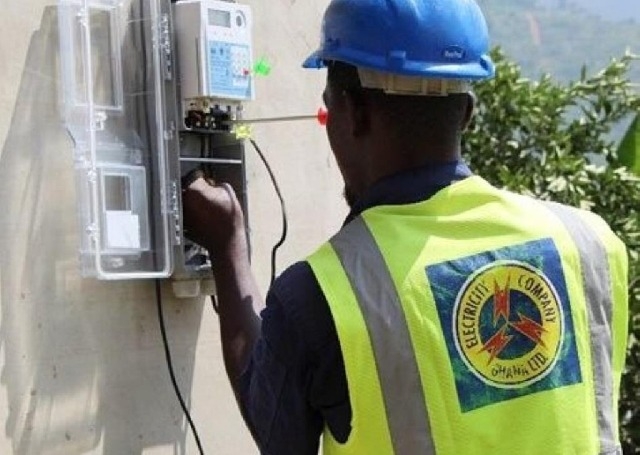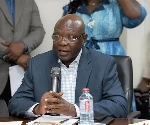Ghanaians pay subsidised cost for ECG metre-PRO
 ECG metre being installed
ECG metre being installed
The Public Relations Officer for the Accra East Region of the Electricity Company of Ghana (ECG), Mary Oppong Eshun, has clarified that electricity meters supplied to customers are not sold but are heavily subsidised by the Government of Ghana, making them the property of the state.
Speaking on the Ghana Yensom Morning Show hosted by Chief Jerry Forson on Accra 100.5 FM on Thursday, November 27, 2025, Miss Eshun explained that although customers make certain payments during the acquisition process, these fees are strictly facilitation charges and not payments for purchasing the meters.
“ECG meters remain the property of the government. The fees customers pay are to facilitate installation—not for buying the meters,” she emphasised.
She added that ECG reserves the right to replace meters when they expire or need system upgrades.
Miss Eshun also provided detailed information on the types of meters currently in use, noting that ECG has both postpaid and prepaid systems, with the prepaid category further divided into smart and non-smart meters.
She outlined the current charges involved in the meter acquisition process:
GHS 100 registration fee (paid via mobile money).
GHS 1,353.60 for a new single-phase connection.
GHS 2,520.72 for a new three-phase connection.
According to her, separate meters for commercial use are treated as completely new acquisitions, while separate meters for residential consumers fall under ECG’s standard service classifications.
To improve customer experience, ECG has introduced premium services for clients who prefer faster or enhanced service delivery.
Fees under this category include:
GHS 3,130.16 for a new meter under premium service.
GHS 2,185 for separate meters under the premium category.
Miss Eshun also addressed concerns about unexplained debt accumulation on some meters.
She explained that every customer is required to pay a monthly service charge of GHS 12.
Failure to pay this service charge results in a buildup on the meter.
She admitted, however, that in some cases, the buildup occurs due to ECG’s inability to synchronise certain meters with the system for automatic monthly deductions.
“When the system fails to sync a meter, the unpaid charge piles up and later appears as debt when customers buy credit.
We apologise for these anomalies in the metering process,” she said.
Miss Eshun assured the public that ECG is working to resolve synchronisation issues to ensure accurate deductions and prevent recurring billing challenges.
Source: Classfmonline.com/Cecil Mensah
Trending Business

Blue Gold responds to Supreme Court ruling on Bogoso-Prestea mine case
08:22
President Mahama Appoints Kwame Griffiths as Deputy MD of Cocoa Processing Company
08:09
Ghanaian business mogul RNAQ expands food security mission efforts with three new food banks
09:33
Weak corporate governance crippling local banks-DR Kwabena Donkor
18:48
Oil Palm Development Policy: Ensure smallholder farmers are fully integrated-GFL to gov't
14:33
All MDAs to go cashless by 2026 as CAGD ends manual cheques
11:32
2024 was the worst economic crisis in Ghana’s history – Kwakye Ofosu
10:22
Vice President pushes for increased local cocoa processing to boost economy
09:42
NPA, 24-Hour Economy Secretariat advances plans for night economy pilot in Osu
09:06
Ghana positioning itself as digital investment gateway for U.S. Businesses — GIPC Board Chair tells AfrICANDO 2025
02:44



